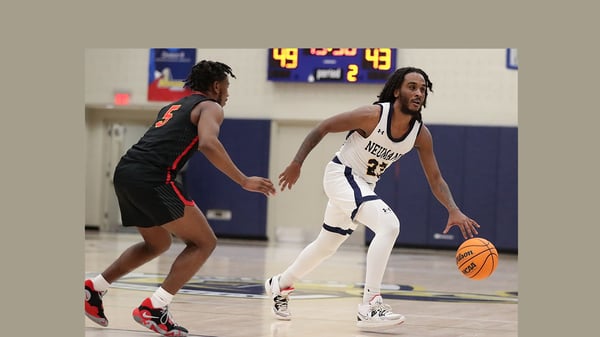The RAB shuttle bus, previously used to drive students and faculty to and from the Rocco Abessinio...
What being Hispanic means at Neumann University

Hispanic Heritage Month was celebrated from September to 15 to October 15, and across the region events highlighted Spanish-speaking cultures of the Americas.
When it comes to being Hispanic, people have many different perspectives, whether positive or negative. However, most if not all, are proud to be Hispanic and embrace their culture. For Hispanic Heritage Month, we asked Hispanic people on campus what their heritage means to them.
Kim Gutierrez, a senior studying political science and a first-generation college student, said, “It’s more than just a race or ethnicity. When I think of being Hispanic, I think of my family, my grandparents, my mom, our food, the music, all of that.”
According to Dr. Maria de Gordon, a professor of Spanish, “Being Hispanic to me means carrying on the strength and traditions of my parents and grandparents who fled communism and overcame obstacles, and challenges with courage and grace in order to have better opportunities for themselves and their families.”
She added, “I have enjoyed teaching Spanish as it affords me the opportunity to inspire students to love the language and cultures of the diverse Spanish community.”
It’s important to understand that Hispanic means Spanish-speaking, while Latino refers to Latin America. People identify differently between the two.
Victor Betancourt, associate provost for global engagement, who was raised in Puerto Rico, identifies as Latino from the Caribbean.
“Being Latino means sharing a history and culture with people of different backgrounds, races, and ethnic groups from Latin America, the Caribbean, and the U.S.,” he said.
Brazilians identify as Latino, but since they predominantly speak Portuguese, are not Hispanic. They do carry Latino pride just as strong.
“I love being Brazilian more than anything,” explains Guilherme Lopes, director of campus ministry. “My faith and spirituality all come from that culture…. When I interact with others, I hope they experience a little of the Brazilian culture through me. Through my energy, my samba, my big heart filled with Latino emotion.”
Being Hispanic means something different to everyone who is a part of the community, but one constant throughout each of these perspectives is family and culture. Being Hispanic does not simply mean being from their country or growing up learning about it. It comes from their passion for their families and the love they have for their culture and wanting to share that with others.

.jpg?width=600&name=RAB%20shuttle%20photo%20(1).jpg)


